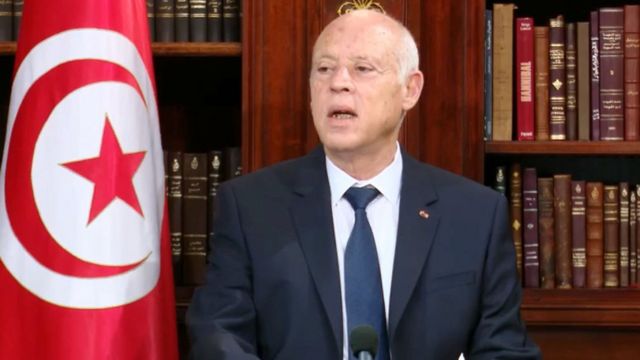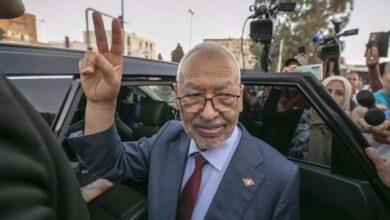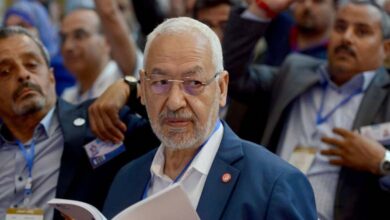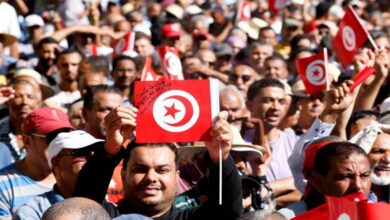Tunisia: Saied Condemns Reduction in Number of Settlement Businessmen

Tunisian President Kais Saied is focusing his efforts to settle the case of businessmen accused of corruption amidst a financial crisis in Tunisia. Saied is searching for resources to pay debts and dues, while he criticized the reduction in the number of businessmen involved in the penal reform (settlement).
While overseeing the swearing-in of the members of the National Committee for Penal Reconciliation on Wednesday at the Carthage Palace in preparation for their duties, President Saied expressed his annoyance at the reduction in the number of businessmen concerned with the penal reform, saying, “Those concerned with the penal reform are 460 people, they are known names and they have files, but today their number reached zero, despite the confession of those accused of corruption cases.”
The committee is a body concerned with reconciliation and reconciliation with businessmen involved in corruption cases. It aims to recover looted state funds, which were used by those involved in the “looting” of public money, and employ them in achieving projects and investments in the country.
The penal reform program calls on businessmen involved in the looting of Tunisians’ wealth and resources to carry out development projects in poor and underdeveloped interior regions.
The projects involve building schools, hospitals and service facilities and creating livelihoods for the country’s unemployed.
The Tunisian president stressed that the penal reform will provide for a settlement and amnesty for 460 businessmen involved in corruption cases for 13.5 billion dinars ($5 billion), in return for their investment in government projects.
He told the nine members of the committee that the $5 billion is owned by the Tunisian people and should be returned to them, warning against “taking over the destiny of the people,” according to a video posted on the presidency’s Facebook page.
He added that the penal reform project has been presented since March 20, 2012, based on a report prepared by Abdelfattah Amor, Chairman of the National Commission of Inquiry on Bribery and Corruption for the year 2011. He was surprised that the number of those accused of smuggling public funds has been reduced, despite their confessions of 460 to 442 people, followed by zero in ten years.
Addressing the members, Saied said, “Honesty is big and your work is big. Do your work with all freedom and independence. The right will be given to the rightful people, the Tunisian people, and you have six months to do so.
“The people’s money must go back to them, because reconciliation can only be with the Tunisian people,” he said. The money of the most involved (in corruption) will go to the poorest parts of the country (through government projects),” he said.
“The money is in Tunisia, but it was stolen and the resources of the people were taken away,” he said.
On November 11th, a presidential decree was issued in the Official Gazette naming the commission’s eight members and its chairman, Judge Makram Bennouna.
On May 10th, Saeed appointed Minister of Justice Leïla Jaffel to form a committee for reconciliation with businessmen involved in corruption cases.
On July 28, 2021, Saied stated that the looted funds from the country amounted to 13.5 billion dinars (about $5 billion), “and must be returned in return for a penal reconciliation with the businessmen involved in looting them.”
“There are 460 people who have looted the country’s money, according to a report issued by the National Commission of Inquiry on Bribery and Corruption,” he said, without naming them.
On March 22nd, Tunisia announced a penal reform regarding “economic and financial crimes” in corruption cases in return for money, according to a presidential decree.












